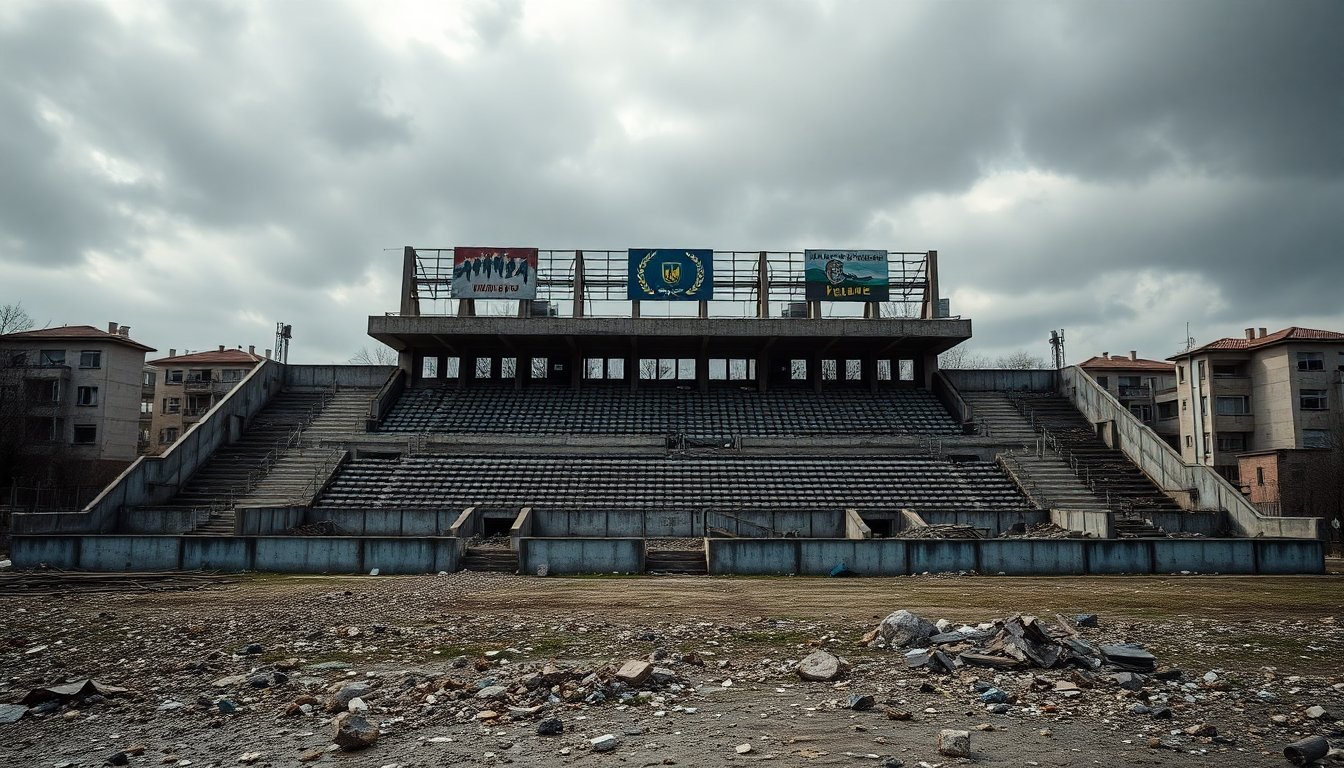Table of Contents
Once vibrant symbols of Ukrainian culture and athletic prowess, the sports arenas of eastern Ukraine have been irrevocably altered by the ongoing conflict instigated by Russian forces. These facilities, which once hosted international sports icons and celebrated cultural events, now stand as haunting reminders of a war that seeks to erase the very essence of Ukrainian identity.
The impact of the war on these venues reveals that they represent more than just buildings; they embody the spirit and resilience of a nation fighting to maintain its cultural heritage against overwhelming odds.
The fate of Ukraine’s sports venues
The landscape of eastern Ukraine was once dotted with world-class stadiums and arenas, bustling with life and energy. However, since the onset of conflict in 2014, many of these venues have been repurposed or left in ruins, symbolizing a broader attempt to undermine Ukrainian culture. Glenn Micallef, a European commissioner for culture and sport, emphasized that aggressors are intent on dismantling the fabric of Ukrainian identity, with sport playing a crucial role in this narrative.
Donbas Arena: A symbol of lost potential
Take the Donbas Arena, for instance. Opened in 2009 and once regarded as a hallmark of modern architecture, this stadium hosted high-profile events, including matches featuring legends like Cristiano Ronaldo and Beyoncé. Despite its grandeur, the arena has been left to decay since 2014, when violence forced its original team, Shakhtar Donetsk, to relocate. Now, the crumbling structure stands as a stark reminder of ambitions that once were.
Former champion boxer Paulie Malignaggi reminisced about his fights at the arena, describing it as one of the most impressive venues he had ever encountered. Now, however, its grandeur lies in ruins, with memories overshadowed by the tragedy of its current state.
The transformation of cultural landmarks
Further south in Mariupol, the story is similar. The main stadium fell into the hands of armed groups after the city was violently seized. Española, a group composed of Russian football hooligans, has been seen parading with weapons in a venue that once hosted thrilling matches and community gatherings. Today, this arena, which was once equipped with the latest technology, is a shell of its former self, marred by conflict and neglect.
Memories of Luhansk’s Avanhard Stadium
The Avanhard Stadium in Luhansk holds a personal connection for many locals, having witnessed the triumphs of Zorya, a beloved football club. In its heyday, the stadium was filled with passionate fans cheering for their team. However, after the conflict escalated, the venue was seized and repurposed for propaganda purposes, with a fake version of Zorya playing in its place. The once-proud chants celebrating the region are now co-opted by separatists, symbolizing the deep cultural rift that has emerged.
Crimea: A different kind of erasure
Moving to Crimea, the situation is equally troubling. The Lokomotiv Stadium, once a hub for the first Ukrainian national football champions, suffered a similar fate after being closed for years. Following its reopening under Russian control, it hosted matches used for political propaganda, further distorting its original significance. The venue now stands as a glaring contradiction to its past glory, serving the interests of an occupying force.
Ukraine’s Minister of Youth and Sports, Matviy Bidny, highlighted the blatant violation of international law represented by these sporting events held under Russian auspices. He argued that every match played in illegally occupied territories is an attempt to obscure the reality of what has transpired, an act of cultural erasure that cannot be overlooked.
The ongoing conflict has not only obliterated physical structures but also the communal spirit and identity forged through sport. As these arenas fall silent, the stories, memories, and cultural heritage they held are at risk of fading away. The world watches as the cultural landscape of Ukraine is reshaped amid the chaos, underscoring the need for solidarity and support for a nation striving to reclaim its identity.


